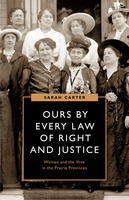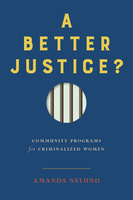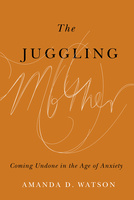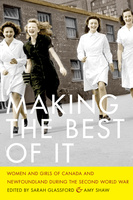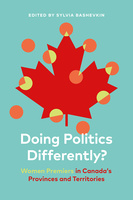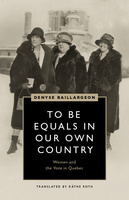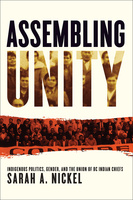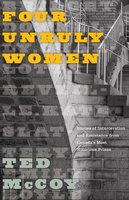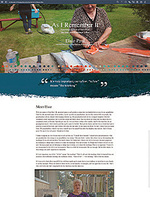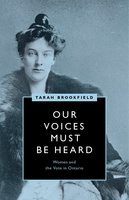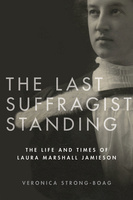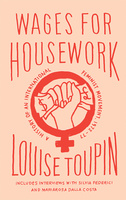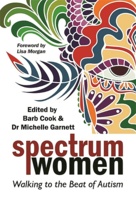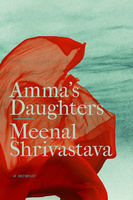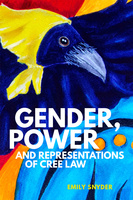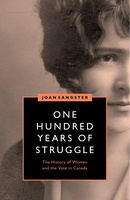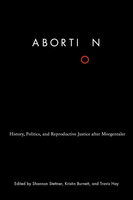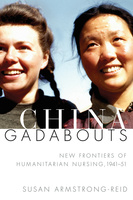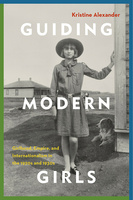Ours by Every Law of Right and Justice
Women and the Vote in the Prairie Provinces
This long-overdue account of the suffrage campaigns in the first region to grant women the vote in Canada shatters cherished myths about how the West was won.
A Better Justice?
Community Programs for Criminalized Women
Do community programs offer an effective alternative to imprisonment for women within the criminal justice system? A Better Justice? sets out the case.
The Juggling Mother
Coming Undone in the Age of Anxiety
The Juggling Mother upends popular representations of the supermom, showing her to be a cultural construction and the model neoliberal worker.
A Great Revolutionary Wave
Women and the Vote in British Columbia
The first book on the woman’s suffrage movement in British Columbia, A Great Revolutionary Wave traces the history of the fight for the vote from the 1870s to the 1940s against a backdrop of social reform, international social movements, labour politics, and settler colonialism.
Making the Best of It
Women and Girls of Canada and Newfoundland during the Second World War
Making the Best of It examines the ways in which gender and other identities intersected to shape the experiences of female Canadians and Newfoundlanders during the Second World War.
Doing Politics Differently?
Women Premiers in Canada’s Provinces and Territories
Do women do politics differently? By assessing the legacies of eleven women premiers, this groundbreaking volume answers a question that has been debated around the world since women first demanded the right to vote and hold public office.
To Be Equals in Our Own Country
Women and the Vote in Quebec
To Be Equals in Our Own Country chronicles the bitter struggle for women’s suffrage in Quebec, the last province to grant Canadian women this fundamental human right.
Assembling Unity
Indigenous Politics, Gender, and the Union of BC Indian Chiefs
Assembling Unity traces the history of pan-Indigenous unity in British Columbia through political negotiations, gendered activism, and the balance and exercise of power.
Four Unruly Women
Stories of Incarceration and Resistance from Canada’s Most Notorious Prison
Filled with stories of pain, regret, and resistance, this chilling account of how four women survived their time at Kingston Penitentiary stands as an indictment of the idea that prisons and punishment are society’s answer to crime.
As I Remember It
Teachings (Ɂəms tɑɁɑw) from the Life of a Sliammon Elder
Meet Elder Elsie Paul and discover her stories, family history, and teachings – ʔəms tɑʔɑw – in a multimedia, online book that captures the wit and wisdom of her storytelling.
Our Voices Must Be Heard
Women and the Vote in Ontario
Our Voices Must Be Heard examines the ideals and failings of Ontario’s suffrage history, its daring supporters and thunderous enemies, and its blind spots on matters of race and class.
The Last Suffragist Standing
The Life and Times of Laura Marshall Jamieson
The Last Suffragist Standing is an unprecedented study of a pioneering Canadian suffragist and politician and an illuminating work on the history of feminism, socialism, internationalism, and activism in Canada.
Wages for Housework
A History of an International Feminist Movement, 1972–77
This is the first-ever international history of the divisive and influential feminist movement, Wages for Housework.
Gender, Power, and Representations of Cree Law
This powerful book investigates the relationship between the oversimplification of gender in representations of Cree law and its effect on perceptions of Indigenous women as legal agents and citizens.
One Hundred Years of Struggle
The History of Women and the Vote in Canada
Acclaimed historian Joan Sangster celebrates the 100th anniversary of Canadian women getting the federal vote with a look at the real struggles women faced, depending on their race, class, and location in the nation, in their fight for equality.
China Gadabouts
New Frontiers of Humanitarian Nursing, 1941–51
This critical reassessment of the Quaker-sponsored humanitarian nursing convoy in 1940s China will deepen understanding of the ethical, cultural, and political barriers to delivering humanitarian assistance then and now.
Guiding Modern Girls
Girlhood, Empire, and Internationalism in the 1920s and 1930s
By analyzing how the Girl Guide movement sought to maintain social stability in England, Canada, and India during the 1920s and 1930s, this book reveals the ways in which girls and young women understood, reworked, and sometimes challenged the expectations placed on them by the world’s largest voluntary organization for girls.

